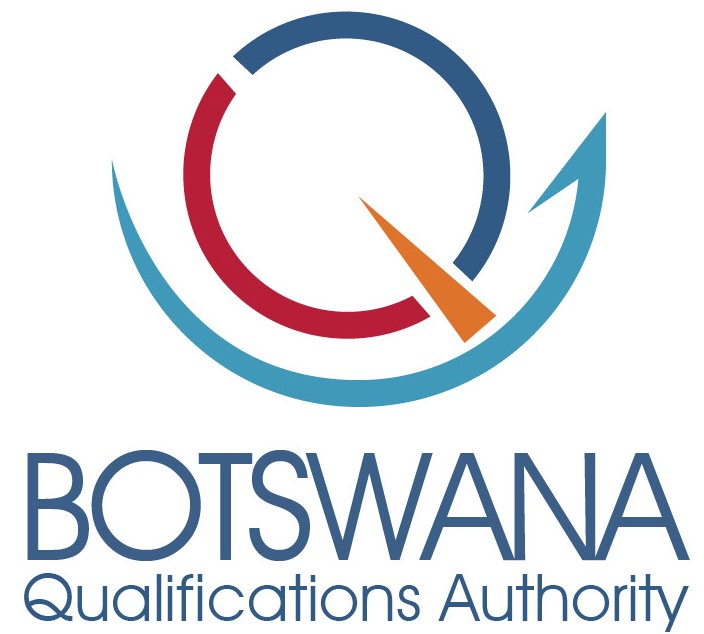Follow the link of registered qualifications:
https://www.bqa.org.bw/registered-qualifications
Frequently Asked Questions
This happens when the validation process has identified gaps that would need a year to close. Learners already enrolled on the learning programme when this status is attained would complete and graduate with a recognised qualification. During this period, the ETP would be under close monitoring by BQA to ensure leaner protection. The ETP would not be allowed to enrol new learners on the
programme until the status changes to either Provisional or Full Accreditation.
BQA works with sector Professional Bodies or regulators when registering qualifications and accrediting learning programmes. Where a professional body exists, BQA enters into an agreement with the professional body so that programmes are validated by the professional body before accreditation. Memoranda of Understanding will be entered into with various professional bodies as BQA rolls out the new Quality Assurance System. This is to ensure that the learning programme meets the sector standards and requirements.
In terms of BQA Act and its regulations, all Education and Training Providers (ETPs), either public or private, are to be registered and accredited with the Authority.
Furthermore, no learning programme can be offered until it has been accredited. The regulations cover all schools, workplaces, consultancies, NGOs etc., that provide education and training at all levels.
Botswana Qualifications Authority registers and accredits training institutions based in Botswana together with the learning programmes they offer.
For qualifications acquired externally to be recognised by BQA, there has to be confirmation that both the training institution and their learning programmes are registered and accredited by Authorities in their respective countries. Applicants must therefore confirm registration and accreditation statuses of such institutions and their respective learning programmes (even those offered online) at their country of origin.
In terms of Regulation 16 of the Botswana Qualifications Authority (Accreditation of Learning Programmes) Regulations, 2016, an Intention to Revoke Accreditation is a first step in the revocation process. The procedure is that once the Authority has issued an Intention to Revoke accreditation, an Education and Training Provider (ETP) is notified in a writing that its learning programme no longer meets accreditation requirements, and the ETP is then given an opportunity to comply
with the accreditation requirements within the specified time.
In terms of Regulation 16 of the Botswana Qualifications Authority (Accreditation of Learning Programmes) Regulations, 2016, an Intention to Revoke Accreditation is a first step in the revocation process. The procedure is that once the Authority has issued an Intention to Revoke accreditation, an Education and Training Provider (ETP) is notified in a writing that its learning programme no longer meets accreditation requirements, and the ETP is then given an opportunity to comply
with the accreditation requirements within the specified time.
Evaluation of qualifications is the process of analysing qualifications in terms of their country-of-origin contexts and points of difference and/or similarity in relation to local qualifications and contexts. It is a twin process that includes:
Verification: a process of authenticating the status of awarding body and/or Education and Training Provider and the qualifications offered by them, as well as investigating the authenticity of qualification documentation and verifying that the qualification was awarded an individual.
Comparability: a process which entails comparing external qualifications with NCQF qualifications, considering the structure and outcomes of qualifications; and locating them within the NCQF.
The Authority has an Institutional Audit division whose main role is to promote and ensure compliance in ETP’s through conducting Monitoring Audits and Statutory Audits among others.
The information on this website is provided by Botswana Qualifications Authority for the purpose of distributing information to the public and its stakeholders. The Authority monitors the quality of the information available on this website and updates the information regularly. While the Authority makes every effort to ensure that the information on this website is accurate, complete and up-to-date, users are advised to exercise their own independent judgement and seek appropriate professional advice relevant to their particular circumstances before relying on the information.
Links to third-party websites are provided for convenience only. The Authority does not endorse nor accept responsibility for the content, accuracy, or availability of these external sites, nor for any product, service or organisation associated with them. Users may interact with such sites at their own risk.
The Authority is not liable for any loss, damage, or expense incurred, whether direct or indirect, resulting from any action taken or reliance made from using this website or its content. This includes, without limitation, third party information, damage caused by viruses, malicious computer code or other harmful components. Users are expected to take precautions to ensure their systems are protected against such risks. By using this website, you agree to these terms and acknowledge that they may be subject to change without prior notice.

